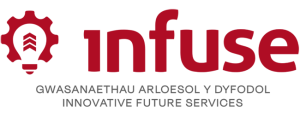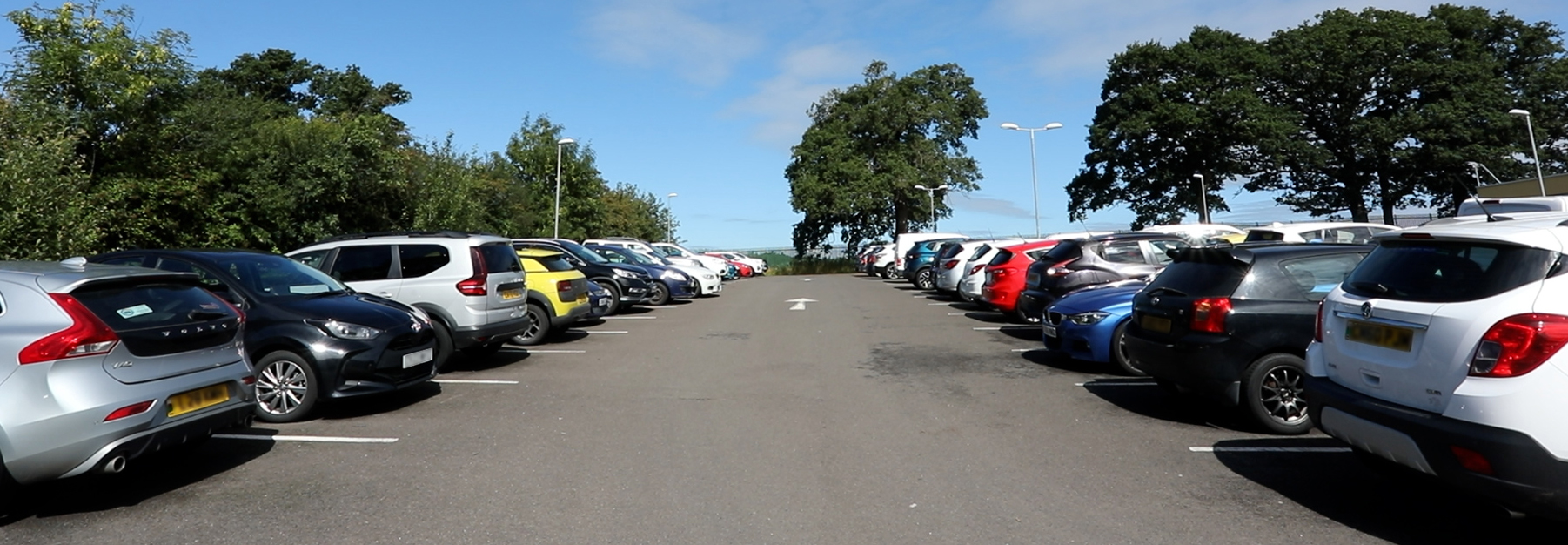What was the overarching challenge?
Like in many Councils, especially in rural areas, Monmouthshire staff need access to cars to get to appointments, whether that’s inspecting infrastructure and assets, or meeting service users and members of the public. The simplest way of doing this has long been reimbursing them for use of their own cars. However, much of this so-called ‘grey fleet’ mileage is completed in petrol and diesel vehicles which is incompatible with Local Authority Net Zero targets as well as expensive to administrate. The solution Hazel is exploring, like many other local Authority staff across the UK, is the move to shared Council-owned vehicles that staff can pick up and return as they need.
Which aspects of the challenge were addressed in the experiment (the research question/s)?
The key uncertainty Hazel identified was where the ‘pool’ vehicles should be parked in the County to maximise their use and so ensure highest emission reductions and cost savings. She also wanted to find out which parts of the Council were the biggest claimants.
What was done to address the challenge?
Hazel has undertaken a great deal of internal engagement including transport, decarbonisation, policy and teams with possible heavy users of personal cars. Slowing down her pace allowed her to explore her challenge fully, ensure she was solving the right problem and build on previous work done in this area.
“It was also amazing to have the time and space to think more deeply about some of the challenges we face in our organisations – it is very rare to have this time and space to carefully think and plan work day to day… we often don’t have (or make) that time, and we tend to jump into solutions without fully understanding the challenge first.”

Hazel Clatworthy,
Monmouthshire County CouncilShe also worked with the Council’s HR department to get access to the right data to answer her question. Discovering that this data might not answer many of her questions, and finding out an internal transport survey was about to be launched, Hazel helped shape it so it could supplement her knowledge.
Which aspects of Infuse were most helpful in addressing the challenge?
The time and space to think through her challenge provided by Infuse was something Hazel found very useful. It is allowing her to fully understand her challenge before making decisions, rather than jumping to conclusions.
She’s also found the tools in the data lab useful. The data maturity concept helped her adopt the right approach for her experiment, when the data quality was not what she hoped for. She also used a Data Action Story and the LOTI outcomes methodology to keep her focused when interesting and challenging issues arose that were beyond the scope of her experiment.
Hazel wrote the following Data Action Story:
“If only we knew where the high mileage claimants live, have as their office base and travel to, we could identify the best places to locate electric pool vehicles, so that the staff who travel most can borrow those vehicles easily and so reduce their grey mileage claims, saving the council money and carbon.”
She wrote the following about the tools she picked up in the Data Lab:
“The Data Action Story, consideration of data ethics, LOTI model, data planning template and ideas for data visualisation have all been very useful in helping me to carefully think through what data I need, what I need it for, how I get it and how I analyse and present it. There is a risk that this project could easily stray off task and get too large and unmanageable, since there are so many interesting things that could be done with data, so these tools have helped me focus on what I need and why.”
What were the main lessons from collaborative working?
Hazel found it useful to compare and contrast approaches to ‘grey fleet’ decarbonisation by different Local Authorities. Another Council in the Cardiff Capital Region had a different policy for staff transport and different data collection techniques which allowed her to see what she was doing in context. Also, an Infuse colleague was considering access to vehicles as a way of attracting and retaining staff, and so was more open to what kind of vehicle, or transport benefit in general, that might be. In the next stages of her experiment, Hazel will be exploring possible alternatives to ‘pool’ cars with staff too.
Key findings
Hazel has identified that colleagues working in social care and health were the biggest claimants of ‘grey miles’ overall with the largest total claim by directorate. Of the top 30 individual claimants, 23 are in that directorate. Of the rest, most were people in ‘inspector’-type roles, for whom site visits are a key part of their duties.
She’s also identified some data consistency issues in the way that claims are made which points to the need to provide clearer guidance to improve data quality in the future. There were differences in the ways locations, journeys and distances were recorded for instance. Mapping of home and work locations also highlighted some data quality issues with address data held by the council.
The experiment prompted Hazel to have an expanded idea of the complexity of trying to introduce ‘pool’ cars. She not only has to think about how their location might maximise use, but also whether they can be located so that daytime and nightshift staff can use the same cars. She has been thinking in more detail about how the cars can be made more attractive in other ways, to encourage behavioural change, prompting her to plan a qualitative data collection session.
Next steps
The next steps for Hazel are working with colleagues with expertise in Geographical Information Systems to develop maps and interactive dashboards to show the data in a more visual way, providing a new perspective on the data. This will make it easier to interrogate where staff live in relation to where they work, and where the highest mileage claimants live so that any discussions can be data enabled. Then she’s planning to compare this with the results of conversations with a team internally about where they’d like to see pool cars.
The Council have set the target to save £100k from the mileage budget and Hazel’s project is set to make a big contribution to that. Beyond that though, this is just the first step in a much bigger shift towards lower carbon transport in Monmouthshire. Although the current plan is for vehicles to at least be hybrid, once charging infrastructure is in place, this scheme will ease the shift to an all electric fleet. Also Hazel’s work uncovering data consistency issues will make an invaluable contribution to understanding how to change transport behaviour across the Council.
Learn more > Read the Infuse Handbook!


